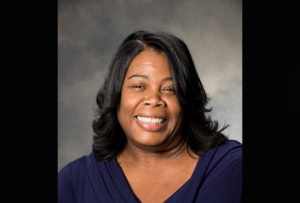Pauline Mosley: Why aren’t more students pursuing careers in STEM?

Professionals in science, technology, engineering and mathematics (STEM) are in demand here in Westchester and across the United States. The number of STEM occupations in the U.S. is projected to grow by 8.9 percent by 2024. The U.S. Department of Labor projects that by 2022, 1.2 million computing-related jobs will be created in the U.S.
Despite this, according to the National Center for Women and Information Technology (NCWIT, 2010), only about 3 percent of the available pool of minority high school graduates will earn computing degrees from American colleges and universities, thus lacking the qualifications to fill these jobs. The caveat here is the decline in student performance in science and mathematics, as well as the reduced numbers of young people choosing careers in science, technology, computing, mathematics or robotics. The situation is even less optimistic considering that there are large groups of individuals, among them women and minorities, particularly African-Americans, who are disproportionately underrepresented in scientific and technological fields.
In addition, there exists a misperception among high school students that STEM subjects are too difficult and that they will fail if they pursue STEM courses. Data from the National Science Foundation (NSF) revealed that in 2010 only 7.5 percent of engineering or computer science technicians were African-American or Hispanic. This percentage is considerably lower than the 12.2 percent national population of African-Americans and Hispanics (NSF et .al., 2013). Experts in the field attribute this lack of STEM+C (computing) interest to students”™ perceptions that computing is too hard and too expensive, along with inadequate preparation and encouragement.
Pace University has been addressing this issue for several years. Pace ran three cybersecurity programs this summer ”” one for students in New York City, one for high school teachers from all over the country and one for high school students in Westchester County. The one for students in Westchester, Camp CryptoBot, recently concluded and is a STEM pipeline restorative initiative. The camp was designed to increase awareness of cybersecurity among young women and minorities and to encourage these students to consider cybersecurity occupations, which is one of the objectives of the Seidenberg School of Computer Science and Information Systems at Pace University.
Pace offered the free, one-week interactive and mission-driven camp to high school students from 28 high schools in five states. The students learned cybersecurity concepts designed to engage and excite them with the hope that they will come away from the experience wanting to learn more. The goal to attract young people to careers in cybersecurity, and increase the numbers of women and minorities who pursue careers in STEM fields.
As part of a robot-building and intelligence gathering exercise, the students built cyber-bots that were launched in the pool at Pace”™s Goldstein Health and Fitness Center as part of a challenge called SeaPerch, a phrase coined by the U.S. Navy. Students programmed and operated underwater remotely operated vehicles to carry out a simulated scenario. They conducted similar exercises with drones and also were addressed by a Navy Outreach Officer during the camp.
The camps are made possible through grant funding from the National Security Agency and National Science Foundation. The Navy is a major partner in the grant and provides personnel including a chief and petty officers to assist in the engineering and soldering aspects of the water robots. Cisco, a sponsor of this grant, provides gifts for the campers and as well as a keynote cybersecurity expert at the closing ceremony. Pace, a Cisco Networking Academy Center, provides campers with the opportunity to continue their learning of cybersecurity by completing an online Cisco course and earning a certificate of completion at the end.
This is the second year that Pace University”™s Seidenberg School of Computer Science and Information Systems has held the weeklong training camp teaching the basics of cybersecurity to high school students. This year, 33 students from around the region participated in the program from July 30 to Aug. 3.
Earlier in July, Pace hosted a similar camp for 24 high school teachers from 11 states who learned how to include cybersecurity lessons in classroom curriculum.
Pauline Mosley is a professor with the Seidenberg School of Computer Science and Information Systems at Pace University. Mosley is the principal investigator of the grant that funds the program as well as the camp director. She can be reached at pmosely@pace.edu.